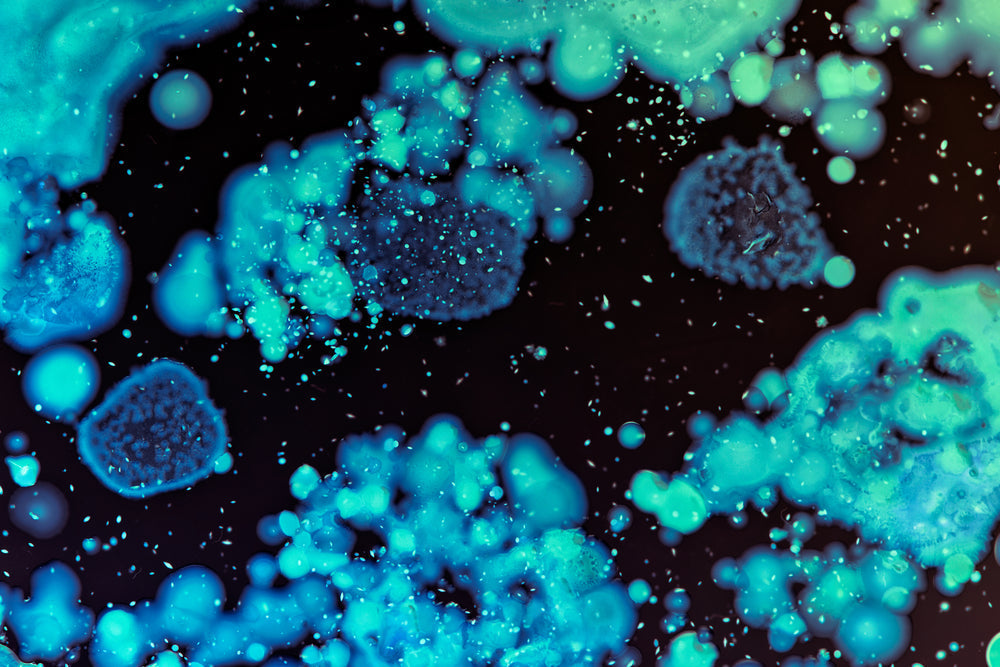What Are Postbiotics? The Final Piece in Gut Healing
5 min readShare

🕒 Estimated Read Time: 7 min
You’ve probably heard of prebiotics and probiotics, but what about postbiotics? These powerful, naturally occurring compounds are the secret messengers of a thriving gut. And if you’re serious about healing from the inside out, postbiotics may be the missing link in your wellness strategy.
What Are Postbiotics?
Postbiotics are the chemical signals and healing agents produced when your gut bacteria break down dietary fibres known as prebiotics. Think of them as the final step in a successful fermentation process within your digestive system, a culmination of microbial teamwork.
These compounds include:
- Short-chain fatty acids (SCFAs): such as butyrate, acetate, and propionate, which nourish the gut lining and calm inflammation¹ ².
- Peptides: small chains of amino acids that support immune responses³.
- Enzymes: which help break down food and reduce gut irritation³.
- Vitamins: like B-complex and vitamin K, produced naturally by gut bacteria to support energy, metabolism, and clotting³.
Together, these substances promote healing, regulate immunity, and improve the communication between your gut and other systems in your body. What’s truly fascinating is that while probiotics and prebiotics prepare the groundwork, it’s postbiotics that do much of the heavy lifting in terms of delivering actual health outcomes⁴.
Why Postbiotics Matter
Unlike probiotics, which rely on surviving the digestive tract, or prebiotics, which are passive fuel, postbiotics are immediately active and ready to work. They strengthen the gut lining, preventing toxins and pathogens from leaking into the bloodstream, a phenomenon often referred to as “leaky gut.” They also interact with immune cells, gently encouraging the body to reduce chronic inflammation, which is linked to a host of modern illnesses, from IBS to skin conditions to autoimmune disorders⁵.
On a biochemical level, postbiotics influence a wide array of systems, from helping regulate blood sugar to influencing your mood and metabolism. When present in the right quantities, these compounds promote a kind of harmony within the body that few other nutrients can replicate⁶.
Why Prebiotics + Probiotics Aren’t Enough
It’s easy to assume that by taking probiotics and eating fibre-rich foods, you’re doing enough for your gut. But the reality is more nuanced. Without postbiotics, the final stage of gut support is incomplete.
Think of a healthy gut as a well-planned garden: probiotics are the seeds, introducing beneficial microbes; prebiotics are the feed, nurturing their growth with the right nutrients; and postbiotics are the shield, the protective, nourishing outcomes that bloom when your gut ecosystem is thriving.
Without all three, your microbiome lacks the resilience and functionality it needs to truly flourish. Postbiotics are what your gut produces when everything’s working right, and they’re the reason your system feels more balanced, energised, and resilient. Without this final piece, your microbiome can’t function at full strength, and the benefits of your gut routine may fall short.
Where Can I Get Postbiotics?
Postbiotics are naturally produced in a healthy gut when your microbiome is nourished with the right foods and supported by diverse beneficial bacteria. You can support postbiotic production through:
- Maintaining a diverse diet full of plant-based fibres to feed your microbiome
- Consuming fermented foods such as kimchi, miso, and kefir, which contain beneficial bacteria that produce postbiotics as a byproduct
- Taking advanced supplements that include clinically supported postbiotics
One effective option is TheroNomic® Gut Shield, a Tribiotic formula that includes heat-inactivated postbiotics designed to mimic your gut’s natural fermentation output. Unlike live bacteria, these postbiotics are shelf-stable and bioactive from the moment you take them, providing immediate, targeted support for your gut lining and immune system.
Conclusion
Postbiotics might be the least discussed of the gut health trifecta, but they are arguably the most impactful. They’re not just evidence that your microbiome is working, they’re the mechanism through which your body reaps the rewards of gut health. If you've been relying on probiotics and prebiotics alone without seeing meaningful improvement, postbiotics may be the critical missing link. By understanding and supporting this final piece, you’ll be giving your gut the full spectrum of tools it needs to heal, protect, and thrive.
References
- Canani RB, et al. Potential beneficial effects of butyrate in intestinal and extraintestinal diseases. World J Gastroenterol. 2011.
- Rios-Covian D, et al. Intestinal short chain fatty acids and their link with diet and human health. Front Microbiol. 2016.
- Zolkiewicz J, et al. Postbiotics—A step beyond pre- and probiotics. Nutrients. 2020.
- Aguilar-Toalá JE, et al. Postbiotics: An evolving term within the functional foods field. Trends in Food Science & Technology. 2018.
- Wegh CA, et al. Postbiotics and their potential applications in early life nutrition and beyond. Int J Mol Sci. 2019.
- Tsilingiri K, Rescigno M. Postbiotics: what else? Benef Microbes. 2013.
